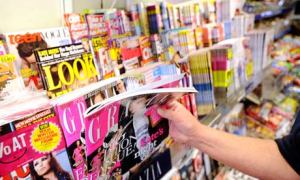by Paula Dunn, Glasgow Rape Crisis
Glasgow Rape Crisis
The Rosey Project is Glasgow Rape Crisis Centre’s dedicated support and prevention service for young people. The project is comprises of a support service for young women between 13 and 17 year olds, a prevention programme which takes us in to schools and youth groups across Glasgow to deliver sexual violence awareness raising workshops to boys and girls. The workshops are based around some of the issues that we hear about at the Centre.
Pornography
Intimate partner violence is common amongst a lot of women who attend our centre for support, and young women are no exception. One of the issues which is raised repeatedly is pornography. Their boyfriend watches it, encourages them to watch it, coerces them in to copying what they see and in some cases forces them to re-enact what is happening in pornographic material. Young women tell us they feel traumatised by what has happened but because they ‘agreed’ to the sexual contact they feel they don’t deserve support. It takes a lot of time to build up trust to get the young women to understand the nature of coercion and how this differs to consent or ‘free agreement’ as described in legislation (Sexual Offences (Scotland) Act 2009). Survivors of sexual violence experience a lot of self blame, guilt and shame which results in many young women feeling isolated, frightened, angry and confused. In order to cope with how they’re feeling, some young women self harm or experience thoughts of suicide because they feel there is no other way.
Media
I haven’t even begun to talk about the impact that ‘lads’ mags’ have on young people and teen relationships. Many young women who have come to the Rosey Project for support or who have attended our workshops experience low self esteem because their boyfriend wants them to look like the women in these magazines. This is an image we know is impossible to achieve. We live in a pornified society, saturated with sexually explicit images with no regard to how these images might affect the developing minds of young people. The nature and prevalence of sexual violence is underestimated by many and the concept of coercion within relationships isn’t something that is explored with young people with any level of detail.
Social Media
Pornography is not the only issue affecting young people and relationships. A lot of the young women attending our centre tell us that abusive comments have been written about them on social media, seemingly with no real consequences for the perpetrators. Some of these remain anonymous but others are people in their school or where they live. Even if the young woman does know the person there seems to be a social acceptance that if you are on Facebook then you are ’fair game’. Comments like ‘what do you expect’ are unfortunately all too common. We live in a digital age where social network sites are an easy way to connect and keep in touch. Young women affected by sexual bullying shouldn’t be expected to cut themselves off and disconnect from all their friends and wider social circle. Time after time the ‘victim’ is expected to adjust her lifestyle and the perpetrator becomes invisible.
The Pressure of Conforming
The pressure that young women are under to conform and alter their behaviour is enormous. We find that young women are open to hearing about alternatives because, all too often, they don’t feel as though they have any other choices. At the Rosey Project we believe a national educational initiative is needed to remedy this. Education about the reality of sexual violence and consent might allow young women to recognise that they have the right to say no to unwanted sexual contact and that support is available if they need it.
Young women need to know what a healthy, consensual relationship looks like and that they deserve to be safe and respected.
